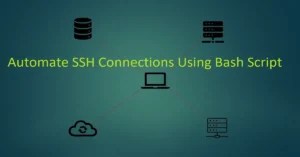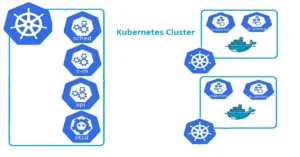As the tech industry undergoes constant transformation, professionals need to proactively stay updated and embrace the evolving trends to stay relevant. By keeping up with the advancements, you can enhance your career prospects and climb the ladder of success. In this article, we will explore the top 10 technologies in 2023 that you should consider learning to gain a competitive edge in the market.
Navigating the Digital Frontier: Exploring the Top 10 Technologies Reshaping the Future:
Artificial Intelligence and Machine Learning (AI and ML)
The 21st century has witnessed the rise of Artificial Intelligence (AI) and Machine Learning (ML) as dominant technologies. Choosing a career in this field opens up opportunities to work with advanced computing systems and be part of groundbreaking research. AI has gained widespread recognition for its exceptional abilities in tasks like image and speech recognition, navigation applications, virtual assistants, and ride-sharing platforms.
Various industries are experiencing a significant transformation due to the disruptive power of Machine Learning, a subset of AI, leading to an increased demand for skilled experts. Experts predict that AI, machine learning, and automation will contribute to 9 percent of new jobs in the United States by 2025, creating opportunities for robot monitoring professionals, data scientists, automation specialists, and content curators. To stay relevant, it is crucial to keep these technologies in mind and consider mastering them.
DevOps: Transforming Software Development
DevOps is a rapidly growing technology that continues to prove its importance in the realm of software development. Since its inception, DevOps has shown great potential in altering business development practices. Especially in the context of the pandemic, DevOps has garnered recognition as a critical development methodology.
Studies project that the DevOps market will expand at a Compound Annual Growth Rate (CAGR) of 24.7% from 2019 to 2026, reaching a market size of $20.01 billion. The significant contribution of DevOps to digital transformation is leading to radical changes across numerous industries. IT professionals must prioritize exploring DevOps and the multitude of career opportunities it offers. Embracing DevOps can lead to roles such as developer, project manager, business analyst, solution architect, and consultant, among others. It is crucial for IT professionals to recognize the potential of DevOps in expanding their career prospects and skill set.
Robotic Process Automation (RPA): Enhancing Efficiency
Robotic Process Automation (RPA) is a type of software technology that makes it easier to create, use, and control software robots. These robots imitate human actions when they interact with digital systems and software. By performing tasks like understanding screens, typing keystrokes, navigating systems, extracting data, and following defined instructions, software robots can work faster and more consistently than humans.
For IT professionals seeking future-proof careers, RPA offers abundant opportunities, including roles such as developer, project manager, business analyst, solution architect, and consultant. By mastering RPA, you can contribute to improving operational efficiency and streamlining business processes.
Cloud Computing: The Power of Scalability
Cloud computing has experienced rapid growth over the past decade, becoming an integral part of both business and individual operations. As a result, the industry has experienced a significant increase in job prospects across a range of positions. Out of all the job roles in organizations, being a cloud engineer is considered very profitable.
To become a cloud engineer, you need to have a good understanding of how cloud applications are built and knowledge of platforms like Amazon Web Services (AWS), Microsoft Azure, or Google Cloud Platform (GCP). As a cloud engineer, you will play a crucial role in creating cloud architectures, defining cloud strategies, and planning their deployment. In the United States, cloud engineers typically earn around $107,000 per year, while in India, the average salary is around 21 lakhs per annum.
Data Science: Unlocking Insights from Data
Data Science has emerged as one of the hottest technologies in the 21st century. By leveraging advanced analytics methodologies and scientific principles, Data Science uncovers valuable information from data, enabling organizations to make informed decisions, strategize effectively, and undertake essential processes. It encompasses predictive modeling, machine learning algorithms, statistical operations, data transformations, and data modeling.
Based on forecasts, the data science market is expected to achieve a worth of USD 322.9 billion by 2026, marking a substantial surge from its value of USD 95.3 billion in 2021. Data scientists hold a pivotal position in harnessing data to generate actionable insights and foster innovation. With the increasing demand for data-driven decision-making, mastering data science can open doors to lucrative career opportunities.
Full Stack Development: Building Comprehensive Web Applications
In today’s web development, full stack development involves building both the front-end and back-end of web applications. This approach is especially important in service-oriented industries like retail and e-commerce, where websites have both client-side and server-side features.
Edge Computing: Processing Data at the Source
Edge computing is a method that involves capturing, storing, processing, and analyzing data closer to the client or source, instead of relying solely on centralized data-processing warehouses. By utilizing edge computing, organizations can gain advantages like reduced latency, improved response times, and enhanced data security. The projected growth of the global edge computing market to $250 billion by 2024 highlights the increasing importance of this technology.
Quantum Computing: Revolutionizing Computational Power
Quantum computing utilizes the distinct characteristics of quantum physics, such as superposition and entanglement, to achieve unparalleled speeds in performing complex computations. These supercomputers have the potential to revolutionize traditional programming methods by enabling exponential speeds and energy-efficient operations.
Virtual Reality and Augmented Reality: Transforming Experiences
Virtual Reality (VR), Augmented Reality (AR), and Extended Reality (ER) are emerging technologies that immerse users in virtual environments or enhance their real-world experiences. Beyond gaming, VR has found practical uses in training, like simulating ship captaincy for the U.S., despite its initial association with gaming. Navy, Army, and Coast Guard. As VR and AR continue to advance, they are expected to revolutionize various industries and create new opportunities for innovation.
Cybersecurity: Safeguarding Digital Assets
As threats continue to evolve, cybersecurity remains a crucial element of technology. Cybersecurity involves safeguarding systems, networks, and software from digital attacks that aim to gain unauthorized access to sensitive information, extort money, or disrupt business operations. Its primary objective is to protect against various types of threats and ensure the security and integrity of digital assets. As hackers continuously attempt to break through security measures, the field of cybersecurity consistently adjusts and develops new strategies to combat these threats. The adoption of new technologies is enabling the enhancement of security measures, effectively protecting digital assets and ensuring their safety.
conclusion
Staying updated with the latest technologies is crucial for professionals in the tech industry. By embracing and mastering these trending technologies in 2023, you can position yourself as a valuable asset in the job market and gain a competitive advantage. Whether it’s AI and ML, DevOps, RPA, Cloud Computing, Data Science, Full Stack Development, Edge Computing, Quantum Computing, VR and AR, or Cybersecurity, there are numerous opportunities to explore and excel in these domains. Adaptability and continuous learning will be the keys to unlocking a successful career in the ever-evolving tech landscape





Pingback: Navigating The Digital Age: Tech Talk Insights - Bitsify
Keep this going please, great job!
We are a group of volunteers and starting a new scheme in our community.
Your web site offered us with valuable info to
work on. You’ve done a formidable job and our entire community will be grateful
to you.
Good luck 🙂
thank you very much
What’s your favorite thing about exploring new ideas or topics?